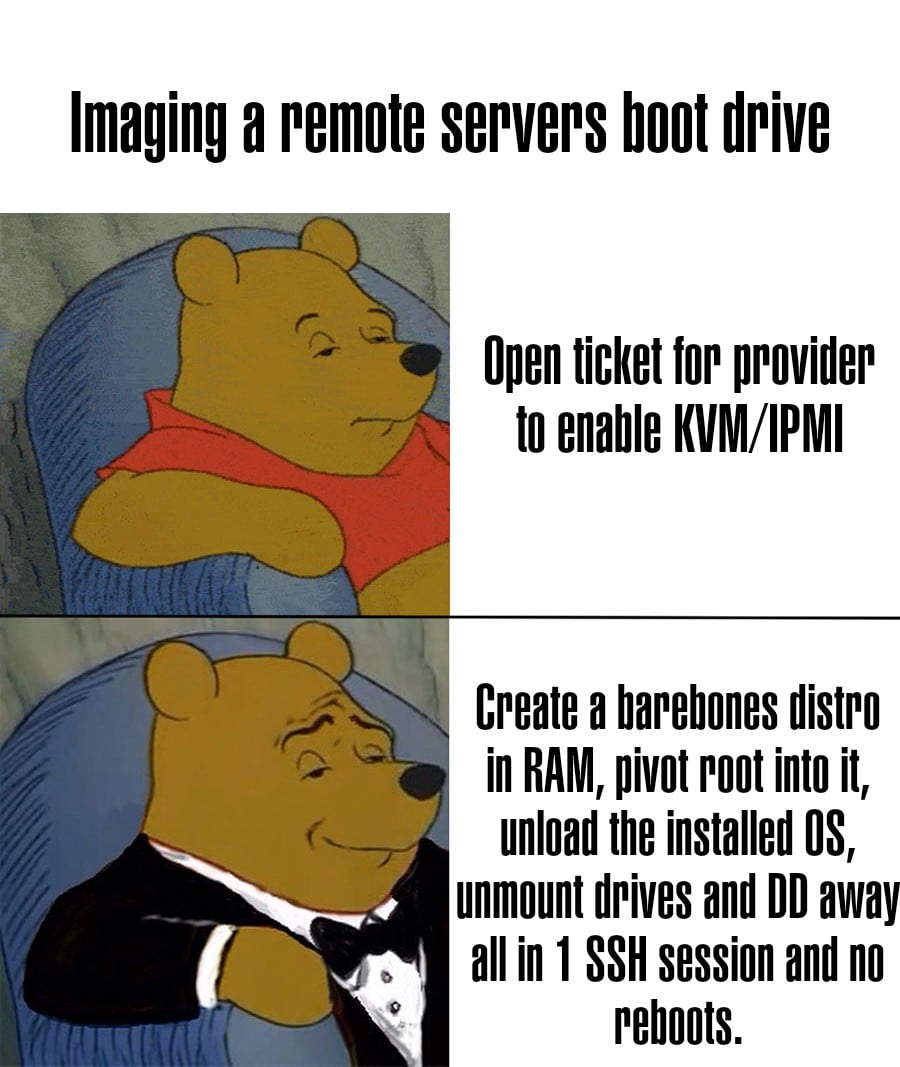this post was submitted on 02 Aug 2024
596 points (98.4% liked)
linuxmemes
21244 readers
1534 users here now
Hint: :q!
Sister communities:
- LemmyMemes: Memes
- LemmyShitpost: Anything and everything goes.
- RISA: Star Trek memes and shitposts
Community rules (click to expand)
1. Follow the site-wide rules
- Instance-wide TOS: https://legal.lemmy.world/tos/
- Lemmy code of conduct: https://join-lemmy.org/docs/code_of_conduct.html
2. Be civil
- Understand the difference between a joke and an insult.
- Do not harrass or attack members of the community for any reason.
- Leave remarks of "peasantry" to the PCMR community. If you dislike an OS/service/application, attack the thing you dislike, not the individuals who use it. Some people may not have a choice.
- Bigotry will not be tolerated.
- These rules are somewhat loosened when the subject is a public figure. Still, do not attack their person or incite harrassment.
3. Post Linux-related content
- Including Unix and BSD.
- Non-Linux content is acceptable as long as it makes a reference to Linux. For example, the poorly made mockery of
sudoin Windows. - No porn. Even if you watch it on a Linux machine.
4. No recent reposts
- Everybody uses Arch btw, can't quit Vim, and wants to interject for a moment. You can stop now.
Please report posts and comments that break these rules!
founded 1 year ago
MODERATORS
you are viewing a single comment's thread
view the rest of the comments
view the rest of the comments

I had a server I rented from a provider in a data center and I wanted to image (dd) the drive for archival before I decommissioned it from my infrastructure.
Normally, you can't really do that with the OS running and you would have to shut down and insert a live USB or something and temporarily boot from that. The server being a faraway rental the only option was to open a ticket so that they could enable an out-of-band management option like KVM or IPMI. Which would allow you to control a machine as if you had a physical monitor, keyboard and mouse in front of you. With that you can attach flash drives, shutdown, restart, see the POST/BIOS/UEFI screens etc remotely .
But, I didn't want to wait 6-8 hours for them to enable that so instead I put together a process that would "boot" me into another distro "installed" into a RAM disk (kinda like how live CD/USB works) from the currently installed and running OS without rebooting
From there I could unmount the boot disk and do what ever I wanted from there, I could have even wiped the disk entirely and installed a entirely different distro if I wanted
How do you do that? What minimal distro did you use? Did you make it yourself? How reliable is pivot-root? How many tries did it take you to do that successfully?